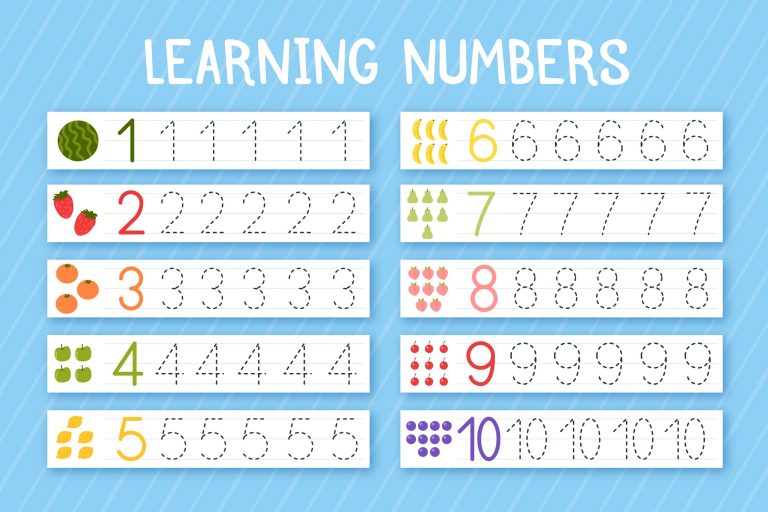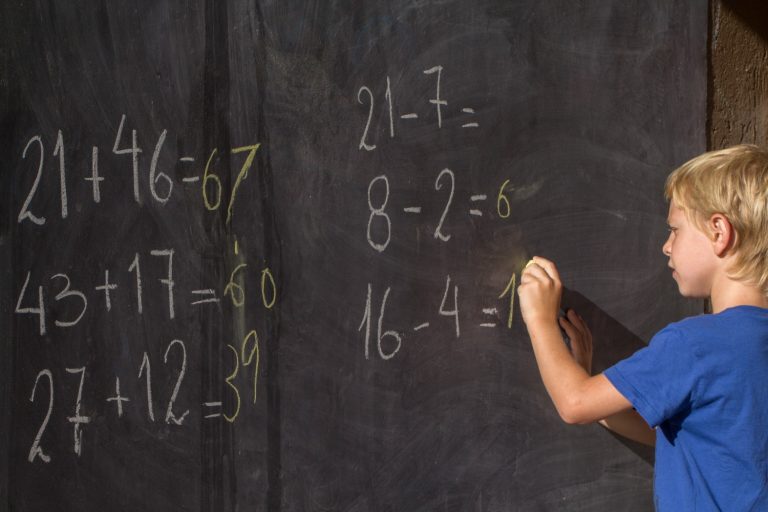Effective Study Habits for Common Core Math Learners of All Ages

The ‘New Math’ approach can be a lot of fun with real-world applications and the stress on abstract thinking rather than plain old memorization. However, it also puts higher expectations on Common Core math learners to have deeper understanding and critical thinking skills. Parents and teachers supporting the learning process may also come across unfamiliar terms and concepts significantly different from traditional problem-solving methods.
Students of all ages face challenges in learning math. But with the right study habits you can master it and achieve success. In this guide, we’ll share a few effective strategies that help elementary, middle, and high school students build a strong foundation in math. Parents and teachers can also use these tips to support learners.
Let’s begin with a few general study habits for Common Core math learners of all ages:
Create a Consistent Study Schedule

Sticking to a routine is essential to excel at anything, including Common Core math learning. A consistent schedule helps organize your time effectively. No more cramming before the exam. Parents and teachers should encourage students to set aside dedicated time daily to review notes and complete homework.
Make sure to break up the study schedule into manageable sessions. 25-30-minute sessions with 5-minute breaks are ideal to focus without burnout. Short study sessions with regular breaks improve concentration and retention.
Active Learning Techniques
The Common Core approach does not encourage passive learning methods like reading and memorizing. Switch to active learning strategies like the Feynman Technique. It has four steps – teach it, identify gaps, simplify, and review.
Students pretend to explain the topic to someone else. If they get stuck, that’s a knowledge gap. Rectify it and continue till the student can explain the topic well. Now, they can use a metaphor or analogy to make the explanation simpler. By explaining math problems out loud in simple terms, you can reinforce understanding and address gaps in knowledge.
Math Study Strategies for Elementary-Level Students

Younger students benefit the most from visual and tactile learning. Flashcards, diagrams, and charts are great for visualizing the problem. And, manipulatives like blocks or fraction tiles are perfect for hands-on learning and make abstract math concepts tangible.
Interactive Learning
Integrate math into everyday activities to help elementary-level learners to grasp math concepts easily. Parents can encourage them by asking the child to count simple objects like cups or books easily available at home. Or, you can get them involved in cooking or baking by asking them to measure out ingredients. In the classroom, teachers can encourage students to draw or use graphs to solve a problem. Visualizing it helps them understand the concept, method, and solution better.
Break Down Complex Problems
Young learners might find complex math assignments overwhelming. So, break larger problems into smaller chunks. Bite-sized tasks will help them maintain focus and avoid stress. Let’s tackle one step at a time to build their confidence as they progress through Common Core math learning. Teachers can prepare guided worksheets to break down the problem into step-by-step tasks.
Math Study Habits for Middle School Students

Middle school students often thrive in groups. Exchanging ideas and explaining concepts to each other allows them to look at a problem from different perspectives. Self-testing is another powerful tool that helps students practice recall.
Collaborative Learning
Group study sessions encourage students to interact with their peers. Teachers can organize peer-to-peer teaching opportunities during class time. They may challenge each other with quizzes and exchange knowledge. This reinforces understanding of complex math concepts through discussion.
Students must make it a habit to summarize what they learn after each study session. Write down the key points and review the notes to move the information from short-term to long-term memory.
Practice Testing
Self-testing is an excellent way to prepare for exams. Take mock tests or online quizzes to identify weak areas and reduce exam anxiety. Flashcards are also useful when practicing information recall. Students can also prepare quizzes or tests on their own, or ask a parent or teacher for help.
High School Math Study Techniques

High school students should set clear, measurable goals for each study session. It could be to master a certain equation or complete a specific number of practice problems. Achieving the goal fosters a sense of accomplishment and is great for motivation.
Focus on Problem-Solving
In high school, Common Core math success hinges on mastering problem-solving skills. Just memorizing formulas won’t get you there. It’s about understanding why a method works and how it can be applied to different problems.
Here’s a breakdown of how to approach problem-solving:
Step 1: Understand the Problem
Read the problem carefully, underline key information, and fully understand what is being asked. Now, restate the problem in your own words to clarify any misunderstandings. Explain it as if you are teaching the problem to a friend.
Step 2: Devise a Plan to Solve It
Identify the math skills or formulas that’ll help solve the problem. Algebraic reasoning or geometry, for example. Now, choose a strategy – drawing a diagram, working backward, or just breaking the problem into smaller tasks.
Step 3: Execute the Solution
Apply your problem-solving strategy by working through each step methodically. It’s easier to track your thinking by writing it down. So that, if you get stuck, you can go back, review your plan, and change the strategy if needed. Problem-solving isn’t always linear – stay flexible.
Think beyond the textbook and practice solving various word problems and real-world applications. This helps develop critical thinking skills essential for tackling advanced math problems.
Advanced Methods
Start incorporating methods like the Leitner System into the study plan. It involves reviewing flashcards at increasing intervals, helping students retain difficult formulas and concepts over time. Active Recall is another advanced method that strengthens memory and helps identify areas where understanding is weak. You can also try Mind Mapping to organize information and show relationships between concepts.
The Interleaving method helps study multiple topics or subjects in a mixed sequence rather than focusing on one subject at a time. This can help improve long-term retention. Dual Coding is another technique, that combines visual and verbal information to create stronger memory associations.
Role of Parents and Teachers

Help students stick to a consistent study routine and make sure they have a quiet, well-organized study space to focus well. Remember that you are supporting their study habits; don’t overdo it. Take care to encourage students to tackle math challenges independently. This helps promote confidence and problem-solving skills. Finally, use technology wisely – incorporate online tools, apps, and games that align with Common Core Math standards.
With the right study habits in place, students can succeed in mastering Common Core Math at any grade level. Remember, mastering math is not just about memorizing formulas but about understanding how to apply concepts in real-world situations.

Is Personalized Learning in Math the Key to Success?
11/26/2024Did you know more than 50% of students in any math class are likely to feel lost or stressed? Most struggle to keep up because lessons move either to... more

Understanding the Top Benefits of Common Core Math Worksheets for Kids with Use Cases
02/19/2024Mathematics is a fundamental subject in a child's education, and the Common Core Math standards have transformed the way math is taught in the Un... more

Understanding What is Common Core Math with Examples
12/15/2023Common Core Math is a term that has stirred up quite a bit of controversy and confusion in the world of education. It has been both praised as a revo... more
 View All
View All